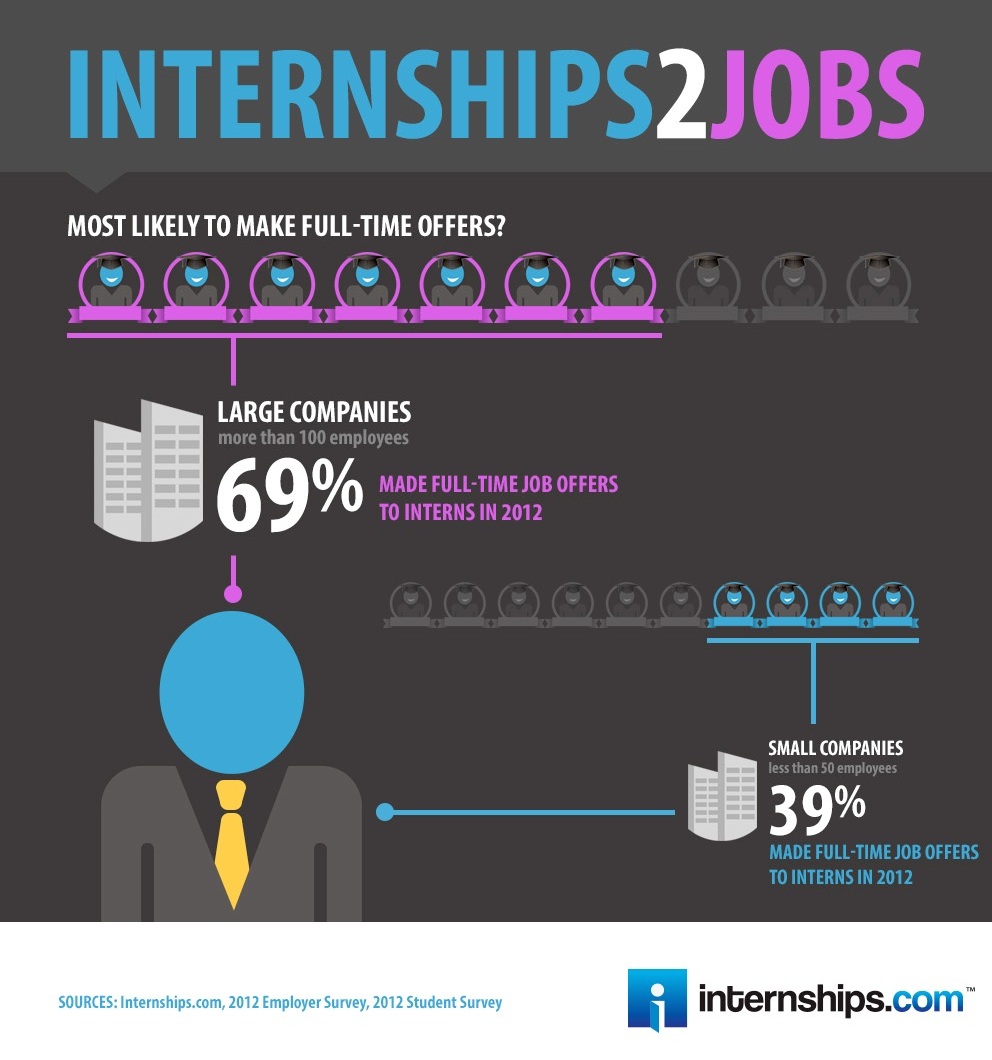An intern can be a great addition to your team at work. However, there are some things to know before you set out to find one. These tips and tricks will give you a head start on finding the perfect intern and help you keep your team motivated while managing interns!
Managing Interns By The Numbers
62% of interns who are hired by companies are still working for those same companies five years later. fastcompany.com
47% of employers have a structured internship program at their place of business. benchmarkemail.com
85% of employers say hiring an intern was a positive experience. internships.com
86% of students say that their internship was a positive experience. internships.com
Photo Credit: interns.org
Benefits Of Hiring An Intern
Internships are extremely helpful tools for students and recent graduates. They give students the opportunity to explore a field and their new talents. Hiring an intern can also be beneficial to you and your place of business. It can even help out your community!
- Save time looking for future employees.
- Gain new perspectives and fresh ideas.
- Low-cost / low risk.
- Develop community support.
- Increase productivity at work.
Where To Find Your Interns
There are a lot of places to look for interns. Using these resources, you will have a bigger pool of interns to choose from. This will make finding the perfect fit for your office a lot easier.
Connect with colleges, universities, professors, and student advisors in your area. The idea is to spread the word about your internship so, post your offer every place you can.
Sites like InternQueen and InternMatch are also great places to check because they’ll do the scouting for you!
Know The Law
It’s critical you check current labor regulations before you determine a job description for your new intern.
“There are some circumstances under which individuals who participate in “for-profit” private sector internships or training programs may do so without compensation. The Supreme Court has held that the term “suffer or permit to work” cannot be interpreted so as to make a person whose work serves only his or her own interest an employee of another who provides aid or instruction. This may apply to interns who receive training for their own educational benefit if the training meets certain criteria. The determination of whether an internship or training program meets this exclusion depends upon all of the facts and circumstances of each such program.” -U.S. Department of Labor
The following 6 criteria must be applied when making this determination:
- The internship, even though it includes actual operation of the facilities of the employer, is similar to training which would be given in an educational environment;
- The internship experience is for the benefit of the intern;
- The intern does not displace regular employees, but works under close supervision of existing staff;
- The employer that provides the training derives no immediate advantage from the activities of the intern; and on occasion its operations may actually be impeded;
- The intern is not necessarily entitled to a job at the conclusion of the internship; and
- The employer and the intern understand that the intern is not entitled to wages for the time spent in the internship.
Managing Your New Intern
(1) Have a clear job description.
Be very careful when it comes to your internship job descriptions. If you decide to give an unpaid internship to someone, just know there are very strict guidelines for what work the intern can and can’t do. You will be limited to what tasks you can give. A paid internship will give you more candidates to choose from. Paying your intern will also allow you to give meaningful projects that can contribute to your business.
(2) Give lots of feedback.
Students are used to getting a lot of feedback, good and bad, from all the years of being in school. It’s important to continue with this. Let them know how they’re doing frequently, this way they’ll have an idea of where they can improve and/or make changes. It’s also a good idea to acknowledge completed projects and a job well done. Make your intern feel important. Encourage them to also give feedback and ask questions. Good communication will be beneficial and key to you both during your time working together.
(3) Give meaningful projects.
If you decide to pay your intern, you will not be as limited to projects you can give them. Tasks that requires much time and effort will be good for you both. It allows your intern to use all of their skills and learn new ones. Also, if the project is meaningful enough, it will contribute to productivity in the office. If you are not paying your intern, make sure not to give all the mundane tasks no one wants. This will be a waste of time for them and you. You want to help your intern as much as possible to better their future and because down the road they may work at your business!
(4) Practice project management.
Have formal meetings every so often to touch base with your intern about finished projects and tasks is key to a healthy internship. This will keep them on track and exercise good communication between you both. A monthly lunch or even a short break is an ideal time to allow your intern ask questions they might have, too. Even if you don’t talk about any current projects, it’s good way to stay on the same page as your intern and gives them a sense of importance.
(5) Don’t forget team building!
Starting an internship at any organization can be intimidating. Team building programs provide a foundation for collaboration and communication. Events are a great way to onboard and welcome your interns, or to thank them at the end of your program. Students understand that their role impacts the team and organization as a whole.













